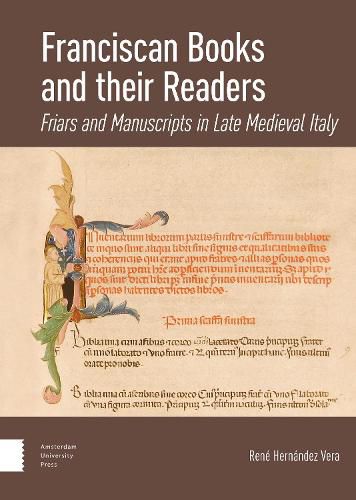Readings Newsletter
Become a Readings Member to make your shopping experience even easier.
Sign in or sign up for free!
You’re not far away from qualifying for FREE standard shipping within Australia
You’ve qualified for FREE standard shipping within Australia
The cart is loading…






Franciscan Books and their Readers explores the manuscripts written, read and studied by Franciscan friars from the thirteenth to the fifteenth centuries in northern Italy, and specifically Padua, assessing four key aspects: ideal, space, form and readership. The ideal is studied through the regulations that determined what manuscripts should aim for. Space refers to the development and role of Franciscan libraries. The form is revealed by the assessment of the physical configuration of a set of representative manuscripts read, written and manufactured by the friars. Finally, the study of the readership shows how Franciscans were skilled readers who employed certain forms of the manuscript as a portable, personal library and as a tool for learning and pastoral care. By comparing the book collections of Padua’s reformed and unreformed medieval Franciscan libraries for the first time, this study reveals new features of the ground-breaking cultural agency of medieval friars.
$9.00 standard shipping within Australia
FREE standard shipping within Australia for orders over $100.00
Express & International shipping calculated at checkout
Franciscan Books and their Readers explores the manuscripts written, read and studied by Franciscan friars from the thirteenth to the fifteenth centuries in northern Italy, and specifically Padua, assessing four key aspects: ideal, space, form and readership. The ideal is studied through the regulations that determined what manuscripts should aim for. Space refers to the development and role of Franciscan libraries. The form is revealed by the assessment of the physical configuration of a set of representative manuscripts read, written and manufactured by the friars. Finally, the study of the readership shows how Franciscans were skilled readers who employed certain forms of the manuscript as a portable, personal library and as a tool for learning and pastoral care. By comparing the book collections of Padua’s reformed and unreformed medieval Franciscan libraries for the first time, this study reveals new features of the ground-breaking cultural agency of medieval friars.